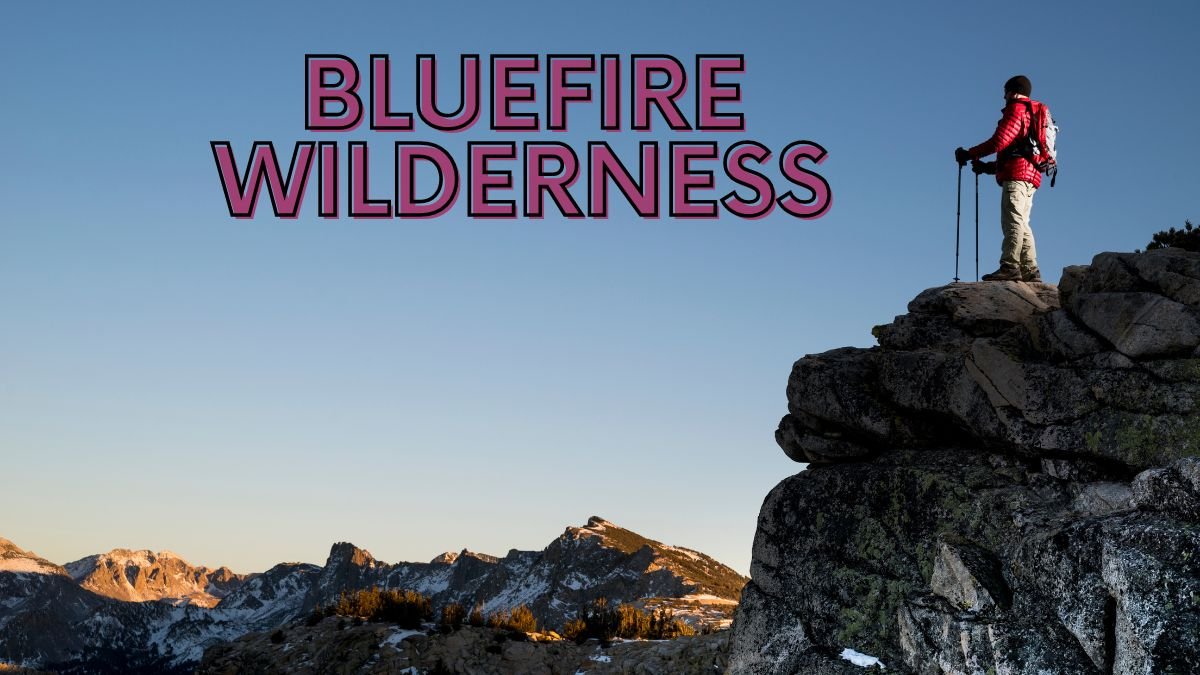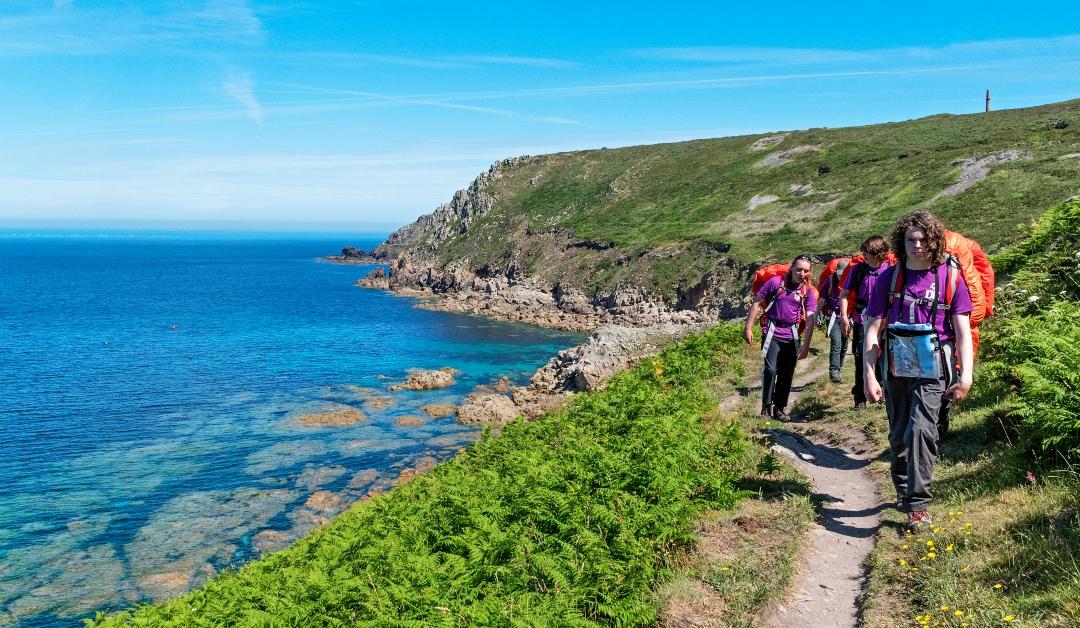bluefire wilderness lawsuit

Introduction:
bluefire wilderness lawsuit, The BlueFire Wilderness Lawsuit stands as a significant legal case that sheds light on the complexities and responsibilities associated with wilderness therapy programs. In recent years, the field of wilderness therapy has gained attention, offering an alternative approach to traditional therapy for troubled youth. However, the lawsuit against BlueFire Wilderness Therapy brings attention to the potential risks and controversies within this industry.

Background of BlueFire Wilderness Therapy:
BlueFire Wilderness Therapy, based in Idaho, was founded with the mission of providing therapeutic wilderness experiences for struggling adolescents. The program aimed to address a range of issues, including substance abuse, behavioral disorders, and mental health challenges. By immersing participants in the wilderness and utilizing a combination of adventure activities and therapy sessions, BlueFire sought to promote personal growth and emotional healing.
Must Read=cyril nri
The Allegations:
The lawsuit against BlueFire Wilderness Therapy stemmed from allegations of negligence and misconduct within the program. Families of former participants accused the program of failing to provide adequate supervision and care, resulting in various incidents of harm and trauma to the adolescents enrolled in the program.
One of the central allegations was the lack of trained staff and proper supervision during wilderness expeditions. Participants reportedly faced dangerous situations without adequate support or guidance, leading to injuries and emotional distress. Additionally, concerns were raised about the effectiveness of the therapeutic interventions offered by BlueFire, with accusations of unqualified staff delivering therapy and questionable treatment practices.

Legal Proceedings:
The lawsuit against BlueFire Wilderness Therapy prompted a thorough investigation into the program’s practices and policies. Legal proceedings involved testimonies from former participants, their families, as well as staff members of BlueFire. The court examined evidence regarding the alleged incidents of negligence and misconduct, aiming to determine the extent of the program’s liability.
Key Findings:
Through the course of the legal proceedings, several key findings emerged, shedding light on the operations of BlueFire Wilderness Therapy:
- Inadequate Staff Training: Testimonies revealed that some staff members lacked proper training and qualifications to handle the complex needs of the participants. This lack of training contributed to instances of mismanagement and put participants at risk.
- Supervision Issues: There were instances where participants found themselves in dangerous situations without adequate supervision from staff members. This lack of oversight heightened the risk of accidents and injuries during wilderness expeditions.
- Ethical Concerns: The lawsuit also raised ethical concerns regarding the therapeutic practices employed by BlueFire. Allegations of unqualified staff delivering therapy and questionable treatment methods highlighted the need for greater oversight and regulation within the wilderness therapy industry.
Implications and Lessons Learned:
The BlueFire Wilderness Lawsuit serves as a cautionary tale for the wilderness therapy industry, highlighting the importance of accountability and ethical standards. In the aftermath of the lawsuit, there have been calls for stricter regulations and oversight to ensure the safety and well-being of participants in such programs.
Furthermore, the case underscores the need for comprehensive staff training and qualifications within wilderness therapy programs. Properly trained staff members are essential for providing effective supervision and delivering quality therapeutic interventions to participants.
Moreover, the lawsuit emphasizes the significance of informed consent and transparent communication between program administrators, participants, and their families. Clear guidelines and expectations should be established to ensure that all parties are fully aware of the risks and benefits associated with wilderness therapy.

FAQ
1. What is the BlueFire Wilderness Lawsuit?
- The BlueFire Wilderness Lawsuit refers to a legal case brought against BlueFire Wilderness Therapy, a program that offers therapeutic wilderness experiences for troubled adolescents.
2. What were the allegations against BlueFire Wilderness Therapy?
- Allegations included negligence, lack of supervision, and misconduct, leading to harm and trauma to participants enrolled in the program.
3. Where was BlueFire Wilderness Therapy based?
- BlueFire Wilderness Therapy was based in Idaho.
4. What types of issues did BlueFire Wilderness Therapy aim to address?
- BlueFire Wilderness Therapy aimed to address a range of issues, including substance abuse, behavioral disorders, and mental health challenges.
5. What therapeutic approach did BlueFire Wilderness Therapy use?
- BlueFire Wilderness Therapy utilized a combination of wilderness experiences, adventure activities, and therapy sessions to promote personal growth and emotional healing.
6. What were some of the key findings of the lawsuit?
- Key findings included inadequate staff training, supervision issues during wilderness expeditions, and ethical concerns regarding therapeutic practices.
7. How did the lawsuit impact the wilderness therapy industry?
- The lawsuit prompted calls for stricter regulations and oversight within the wilderness therapy industry, emphasizing the importance of accountability and ethical standards.
8. What lessons were learned from the BlueFire Wilderness Lawsuit?
- Lessons learned include the importance of comprehensive staff training, informed consent, and transparent communication to ensure the safety and well-being of participants.
9. Were there any injuries reported during the program?
- Yes, injuries were reported, with allegations of participants facing dangerous situations without adequate supervision.
10. How did BlueFire Wilderness Therapy respond to the allegations?
- BlueFire Wilderness Therapy has not publicly disclosed its response to the allegations due to legal considerations.
11. Were there any changes in BlueFire Wilderness Therapy’s operations following the lawsuit?
- Details regarding changes in operations following the lawsuit have not been publicly disclosed.
12. Did the lawsuit result in any financial settlements?
- Details regarding financial settlements, if any, have not been publicly disclosed.
13. Were there any criminal charges filed as a result of the lawsuit?
- Details regarding criminal charges, if any, have not been publicly disclosed.
14. Did the lawsuit lead to any changes in industry regulations?
- The lawsuit contributed to discussions about the need for stricter regulations and oversight within the wilderness therapy industry.
15. What qualifications did staff members at BlueFire Wilderness Therapy have?
- Testimonies during the lawsuit raised concerns about some staff members lacking proper training and qualifications.
16. How long did the legal proceedings last?
- The duration of the legal proceedings has not been publicly disclosed.
17. Were there any specific incidents mentioned in the lawsuit?
- Specific incidents of negligence and misconduct were mentioned in the lawsuit, including instances of participants being put in dangerous situations without adequate supervision.
18. Did the lawsuit result in any changes to BlueFire Wilderness Therapy’s leadership?
- Details regarding changes in leadership, if any, have not been publicly disclosed.
19. Were there any recommendations made as a result of the lawsuit?
- Recommendations for improvements in staff training, supervision protocols, and ethical practices may have been made as a result of the lawsuit.
20. Is BlueFire Wilderness Therapy still operational?
- Details regarding the current operational status of BlueFire Wilderness Therapy have not been publicly disclosed.
Conclusion
stakeholders in the wilderness therapy industry must work together to implement reforms and standards that prioritize the safety, well-being, and ethical treatment of participants. By learning from the mistakes and shortcomings exposed by the BlueFire Wilderness Lawsuit, the industry can strive to uphold its commitment to helping troubled youth while ensuring accountability and integrity in its practices.
